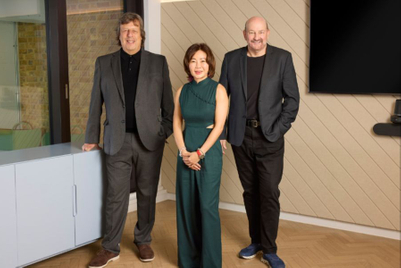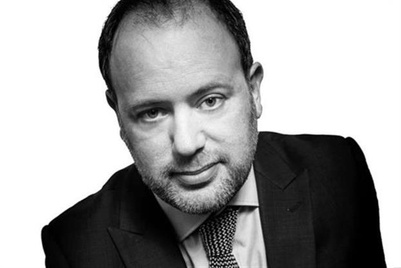
According to this approach, EDB and its agencies “think horizontal but act vertical”, said Dane Lim, deputy director of the Singapore EDB. By that he means all the organisation’s agencies are expected to come in with a perspective on everything, including strategic planning, insights, creative, digital and final execution. So in essence, the work will be developed by different agencies, working together as one team.
That’s exactly how the recent Coffee Connector, a machine designed to create connections by demanding the cooperation of two people in order to dispense coffee, originated. The machine will be used at key events and conferences across North America throughout 2014 and 2015.
To reiterate the importance of the process, EDB is actively involved in agency management, and has put a bi-annual agency feedback mechanism in place. It works with independent consultancy R3 to embed this model into the system. Collaboration, a key metric, is deliberately built into R3's client-agency performance evaluations (CAPE) and accounts for 20 per cent of the entire scoring system.
“We are a facilitator and a coach,” said Shufen Goh, principal at R3. “A lot of agency evaluation is one way. We took it a step further, getting agencies to evaluate each other. Part of the success is not just the numeric score but the ability for people to be honest and fair in their feedback.” CAPE also ensures accountability, Goh added, pointing out that it helps track fees and fair utilisation.
EDB, which in 2012 conducted a global review, picked The Secret Little Agency (TSLA), TBWA and MEC as its creative, digital and media agencies, respectively. Strawberryfrog and Edelman are its agencies in the US, while it works with Hirschen and Weber Shandwick in Germany. Building a “unique agency model” also entails working with agencies for a longer duration, a departure from most government tenders, which typically last a few months or the duration of a campaign. At present, EDB’s agency contracts run 19 months with an optional 24-month extension.
“It’s impossible to build a culture if you keep changing agency partners,” Lim noted. “Going through a tender is just the first stage. Finding the best possible partner and keeping them motivated will help drive results.”
Lim stressed that the model EDB is building is distinct and has proven beneficial. Collaboration scores have improved 20 to 25 per cent, and the approach has resulted in more openness.
“Today, our agencies can challenge us quite openly,” Lim said, adding that the challenge is in sustaining the culture. “We recognize with agencies that people will come and go, so process and active agency management has to happen constantly.”
When asked who the lead agency is, Lim laughed. “Even the agencies ask us that. Ultimately the client has to be the leader. When we talk about 'think vertically' we want everyone to be at the same stage.”
The model is reflected internally too. “Reinventing the mode starts within the marketing department,” Goh said. Communications, marketing and PR used to be very clearly divided, but with everything overlapping that no longer holds, she said.


+(900+x+600+px)+(3).png&h=334&w=500&q=100&v=20250320&c=1)
+(900+x+600+px).jpg&h=334&w=500&q=100&v=20250320&c=1)
.jpg&h=334&w=500&q=100&v=20250320&c=1)


.jpg&h=334&w=500&q=100&v=20250320&c=1)
+(900+x+600+px).png&h=334&w=500&q=100&v=20250320&c=1)

+(900+x+600+px)+(1).png&h=334&w=500&q=100&v=20250320&c=1)



.jpg&h=268&w=401&q=100&v=20250320&c=1)

.jpg&h=268&w=401&q=100&v=20250320&c=1)


